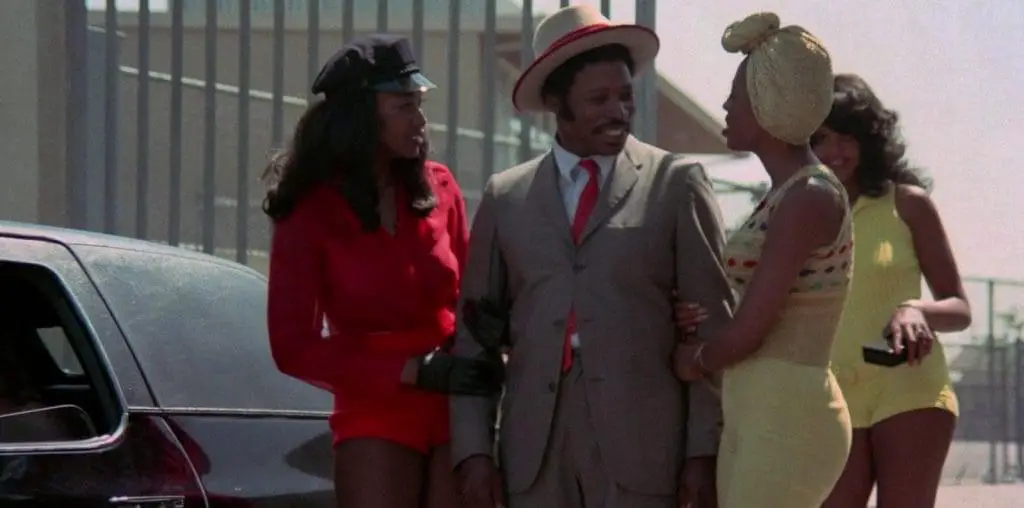
Cold Mountain has more layers than a flaky slice of baklava tempting customers from a bakery display case. The cast is massive, with Old Guard reliables such as Donald Sutherland competing with newbies like Jude Law for screen time. Meanwhile, there are several interwoven stories sewn into Anthony Minghella’s ambitious quilt of a movie. Men are blown to smithereens by exploding gunpowder in the Civil War trenches of Virginia, women and children struggle to manage family farms, and forest wanderers eat fried goat meat from the kitchens of grizzled, Yoda-esque mountain women.
Even so, it’s a safe bet that audiences will remember Charlie Hunnam’s tiny supporting role. As the villainous Bosie, a restless Home Guard albino itching to shoot war deserters, Hunnam breaks into a backflip worthy of David Lee Roth, before noosing the neck of a terrorized farm mother. This guy enjoys cruelty the way Hannibal Lector savors human liver. Meanwhile, his pale eyebrows and stringy, blonde locks bring to mind a frontier version of Riff Raff, the bleached-white butler from “Rocky Horror Picture Show.”
“Bosie is a very vague character in Charles Frazier’s book,” explains Hunnam from a Seattle hotel room. “In fact, there are only a couple of lines that describe him. He’s depicted as a slight, sickly guy with fair hair. Even during early rehearsals for the movie, he only appeared in the final scene. Eventually, Anthony put me into more and more things, and gave me more to do.”
Through a creative collaboration with Minghella, the actor beefed up his under-written role and added a charismatic angle for Bosie. “Anthony would ask me, ‘What if he is really flashy, not just shooting someone but also doing a backflip?’ But that prompted questions of logic. If he’s such an able bodied killer, why isn’t he out fighting in the war?”
One of the many story threads tackled by “Cold Mountain” concerns the Civil War Home Guard, a collection of men deemed unfit for combat and assigned to watch over the families of Confederate soldiers. Perhaps due to age, illness, or injury, Home Guard members were spared the trenches. Many became bullying killers as the organization’s duties shifted from civilian civility to the execution of war deserters. Where would Hunnam’s re-invented presence fit into all of this?
“There had to be some kind of ailment, some reason he was resigned to serving on the Home Guard. One day, Anthony asked me, ‘What if he was an albino?’ He told me to go away and read as much as I could about albinism. That’s the way Anthony works. He gives his actors a great deal of responsibility.”
“I read that the condition was often a product of incest. Otherwise, there’s a million to one chance, because you need identical genes to mix. Also, I read that albinos generally have about 60/20 vision and are susceptible to nosebleeds. Every time Bosie shoots someone, his body fails him and his nose starts bleeding.” The appearance of this cadaverous reaper in Cold Mountain is made all the more unsettling by the liquid crimson that’s often trickling down his fare face.
“Here’s a guy who has been ostracized his whole life, with all this rage inside,” says the Newcastle-born actor, explaining Bosie’s violent demeanor. “Maybe he can fight in the war and get respect. But he doesn’t get to fight. He’s going to burst at any given moment.”
While Bosie’s angry spirit survives the final cut of Cold Mountain, the 23-year old actor empathizes with viewers who might leave theaters feeling as though the Home Guard’s transformation, from paternal overseer to remorseless bully patrol, is underdeveloped.
“The original cut of the film was over five hours,” he explains. “More than half of it is gone, including a lot of really snazzy chase sequences. The real thing that’s missing is the story of the Home Guard, which was kind of a noble role. Their job was to protect the women and maintain order, a proud responsibility to have. Over the course of the war, during its third year, the group’s primary role became tracking down deserters, and deterring other men from deserting. The arc and change of that is more detailed in the movie’s longer version. Perhaps the DVD will have that stuff.”
Get the rest of the interview in part two of “MOUNTAIN” MAN>>>
